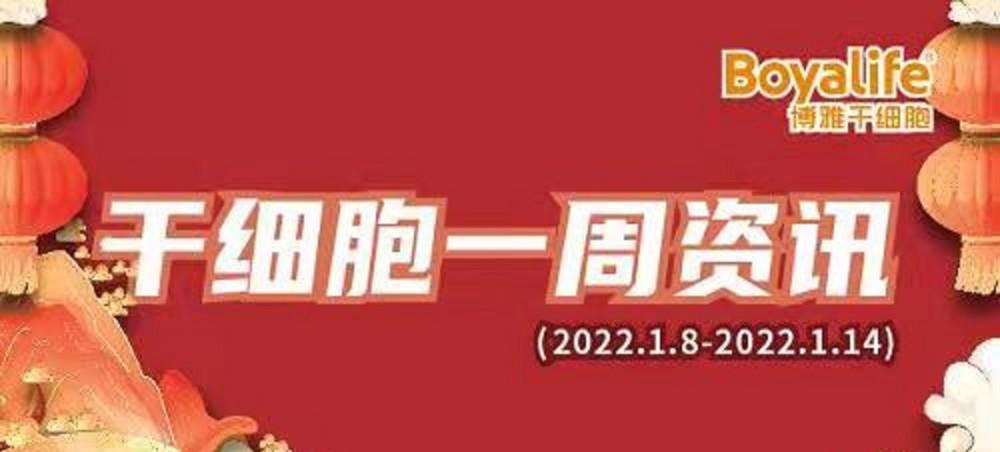
Global cell therapy investment and financing totaled more than $9.9 billion in 2021: In 2021, the global cell therapy field involved about 138 financings (including IPOs), with a total financing amount of more than $9.9 billion and about 22 IPOs. Among them, T cell therapy has the largest financing, with more than 7.3 billion US dollars. This was followed by stem cell therapy (over $2.5 billion) and NK cell therapy (over $1.4 billion). There are about 52 domestic financings, totaling more than 1.8 billion US dollars, of which more than half of the companies have laid out T cell therapy, CAR-T has the most (>30%), and domestic companies have focused on CAR-T to overcome solid tumors and general-purpose cell therapy.
Medicine Cube Pro
Umbilical cord mesenchymal stem cells in the treatment of decompensated cirrhosis passed the record: The stem cell clinical research project "A prospective clinical control study evaluating the effectiveness and safety of umbilical cord mesenchymal stem cells in the treatment of decompensated cirrhosis" was reviewed and filed by the National Health Commission and the State Food and Drug Administration. This project is the first approved stem cell clinical research project in the hospital and the first stem cell clinical research project in Fujian Province for the treatment of cirrhosis.
The First Affiliated Hospital of Fujian Medical University
"Regenerative Transplantation for Type I Diabetes" Patient Recruitment: Shanghai Changzheng Hospital of naval military medical university is currently conducting a clinical study on "Evaluating regenerative islet transplantation treatment of type 1 diabetes with recurrent hypoglycemic attacks" patient recruitment. This project was carried out by the Yin Hao team of the Transplant Department of Shanghai Changzheng Hospital in cooperation with the Cheng Xin team of the Center for Excellence in Molecular Cell Science of the Chinese Academy of Sciences, and has obtained ethical approval for stem cell clinical research [CZSC-2021(CR)-01], and has received long-term support from the Chinese Academy of Sciences, the Ministry of Science and Technology, the Shanghai Municipal Science and Technology Commission and the Shanghai Shenkang Center.
Doctor Mike
Domestic dual-target CAR-T therapy has been recognized by the FDA as an advanced therapy for regenerative medicine: Recently, the US FDA has granted the dual-target CAR-T therapy C-CAR039 advanced regenerative medicine certification (RMAT) and fast-track qualification developed by domestic enterprises for the treatment of patients with relapsed/refractory diffuse large B-cell lymphoma (r/r DLBCL). C-CAR039 is a novel autologous bispecific CAR-T cell therapy that targets both CD19 and CD20 antigens, which can effectively remove CD19/CD20 single-positive or double-positive tumor cells in vivo and in vitro.
Creature exploration
Fuzhou's first CAR-T treatment center settled in the First Affiliated Hospital of Fujian Medical University: The reporter learned that the First Affiliated Hospital of Fujian Medical University recently passed the certification and became the authorized treatment center of Fuzhou's first CAR-T cell therapy drug - Agilunse Injection. Adult patients with relapse or refractory large B-cell lymphoma who have previously received second-line or higher systemic therapy have new treatment options. In June last year, the State Drug Administration officially approved the first CAR-T cell therapy drug in China, Agilunse Injection, for adult patients with relapsed or refractory large B-cell lymphoma after receiving second-line or above systemic treatment.
Fuzhou Evening News
Scientists reveal the mechanism of CAR-T cell dysfunction: chimeric antigen receptor T (CAR-T) cell therapy has a significant effect in the field of hematologic malignancies, but the efficacy of solid tumors is not satisfactory, and some recent studies have shown that CAR-T dysfunction is one of the main reasons for the ineffectiveness of solid tumor treatment. Recently, the research team at the University of Pennsylvania revealed that the CAR-T cell disorder mechanism is from CD8+ T cells to NK-like T cells by simulating CAR-T cells in the tumor microenvironment, and the upregulation of transcription factors (ID3 and SOX4) is closely related to CAR-T cell dysfunction. The results were published in the journal Cell.
Biological Center of the Ministry of Science and Technology
Mesenchymal stem cell exosomes have the potential to kill tumor cells: new research reveals potential therapeutic effects of adipose mesenchymal stem cell exosomes in inhibiting the growth of drug-resistant triple-negative breast cancer. The researchers developed a method of processing the exosome preparation of human adipose mesenchymal stem cells in different concentrations and evaluated their molecular composition. Experimental studies were conducted in vitro using breast cancer cell lines and nude mouse breast cancer models and found that exosomes have a dose-dependent effect on inhibiting the growth of triple-negative breast cancer. Mesenchymal stem cell exosomes are a potential biological therapy for breast cancer that can be used as a complementary therapy to other standard treatments to provide better efficacy.
scientific reports